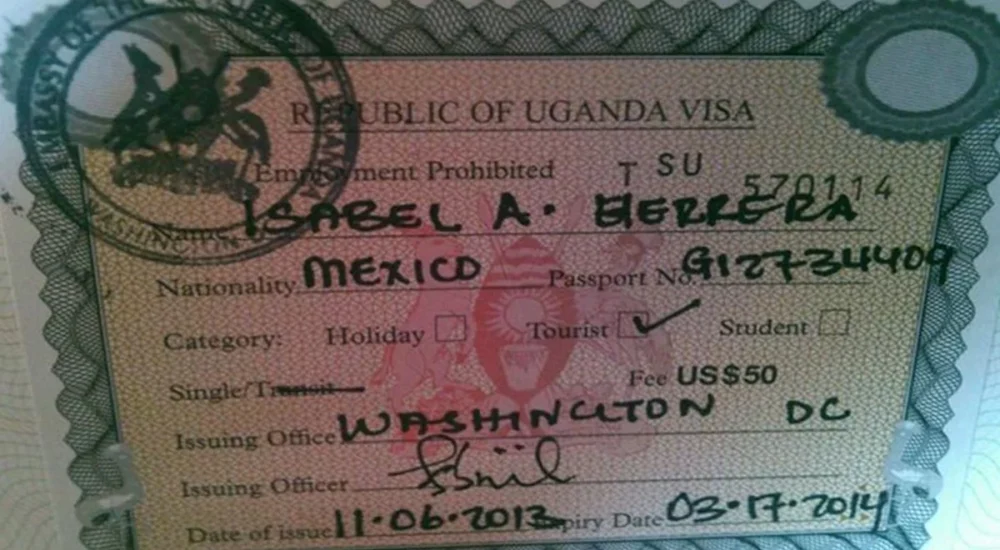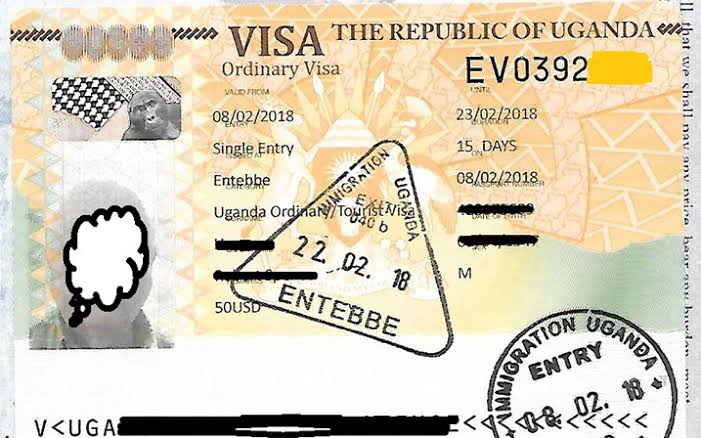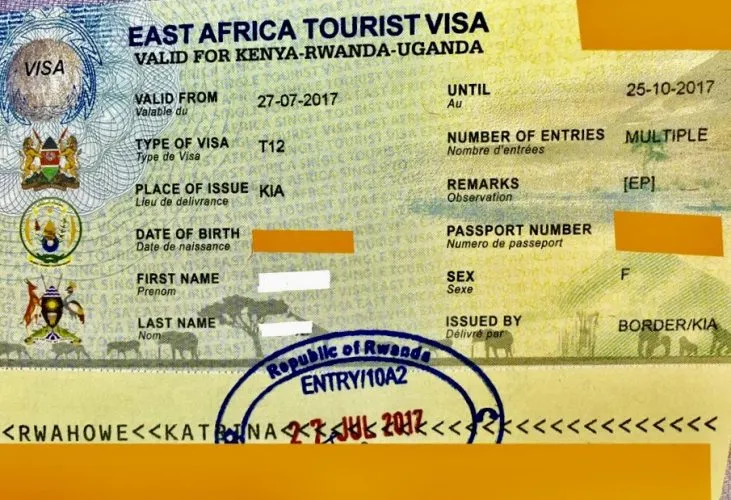
Cultural Festivals in Uganda | Experiya Tour Company
October 29, 2025
Is the East Africa Tourist Visa Valid for Uganda | Experiya Tour Company
October 29, 2025Do I Need a Visa to Enter Uganda?
Uganda, famously known as the Pearl of Africa, is one of the most captivating destinations on the continent. From the rolling green hills of the west to the roaring Murchison Falls and the tranquil waters of Lake Victoria, Uganda offers an incredible mix of adventure, wildlife, and culture. But before you can immerse yourself in the country’s beauty, one question stands out for every traveler: Do I need a visa to enter Uganda?
For most international visitors, the answer is yes. Uganda welcomes travelers from all over the world, but the majority of foreign nationals must obtain a visa before entry. The process is simple, efficient, and can be completed online. Whether you’re planning a gorilla trekking safari, a business trip, or a family vacation, understanding Uganda’s visa requirements is essential for a smooth journey.
Visa Policy Overview
Uganda’s visa policy is designed to make entry easy for tourists while maintaining security and proper documentation. Most foreign nationals are required to apply for a visa in advance through the country’s online portal. A few neighboring African countries, particularly those that are members of the East African Community, are exempt from visa requirements, but travelers from outside the region should prepare to apply for one.
Citizens of Kenya, Tanzania, Rwanda, South Sudan, and Burundi can enter Uganda visa-free under regional agreements. However, citizens of Europe, North America, Asia, and other parts of Africa must obtain a visa prior to arrival or apply for an eVisa online.
Types of Visas Available
Uganda offers several types of visas, depending on your purpose of travel.
1. Tourist Visa
The most common visa for travelers visiting Uganda for leisure, safaris, or holidays is the single-entry tourist visa. It allows you to stay in the country for up to 90 days. The tourist visa is perfect for those coming for gorilla trekking, cultural tours, or sightseeing adventures.
2. Multiple-Entry Visa
If you plan to travel in and out of Uganda several times within a few months or over a year, you can apply for a multiple-entry visa. These are available for 6, 12, or 24 months and are particularly useful for business travelers or researchers who visit the country frequently.
3. East Africa Tourist Visa
For travelers planning to explore more than one East African country, the East Africa Tourist Visa is an excellent option. It allows entry into Uganda, Kenya, and Rwanda under one permit, valid for up to 90 days. You can move freely between these three countries without applying for multiple visas, making it ideal for those taking a regional safari or cultural tour.
4. Transit Visa
If Uganda is not your final destination but you have a short layover or stopover, you can apply for a transit visa. It’s valid for a short stay and allows travelers to explore Kampala or nearby attractions during connecting flights.
5. Diplomatic and Official Visas
These are issued to government officials and diplomats traveling on official missions.
How to Apply for a Ugandan Visa
Uganda has simplified the visa process with an efficient online system that saves travelers the hassle of embassy visits. The Uganda eVisa can be applied for through the official Directorate of Citizenship and Immigration Control website.
The application process is straightforward. You’ll need to fill in your personal details, upload required documents, and make an online payment. Once approved, you’ll receive a confirmation letter via email, which you should print and present upon arrival at Entebbe International Airport or any designated border point.
Documents Required for a Visa Application
To successfully apply for a Ugandan visa, you’ll need to prepare a few essential documents.
- A valid passport with at least six months of validity from the date of entry.
- A recent passport-sized photograph.
- A copy of your flight itinerary or return ticket.
- Proof of accommodation, such as a hotel booking or tour confirmation.
- A yellow fever vaccination certificate.
- Proof of sufficient funds or a travel itinerary outlining your stay.
For the East Africa Tourist Visa, you may need to indicate the first country of entry and your intended travel route across the region.

Visa Fees and Processing Time
The standard single-entry tourist visa costs about USD 50. The East Africa Tourist Visa costs around USD 100 and provides access to Uganda, Kenya, and Rwanda. Multiple-entry visas vary in price depending on duration, ranging from USD 100 to USD 200.
Processing time for an eVisa is usually between two to five working days, though it can sometimes take longer during busy travel seasons. It’s advisable to apply at least two weeks before your planned trip to ensure everything is ready in time.
Once approved, you’ll receive an email notification with an approval letter. Print this out and carry it with you — it’s your official authorization to enter Uganda.
Visa on Arrival
Previously, Uganda allowed travelers to obtain visas on arrival, but the process has largely shifted online. Although some travelers can still get visas at the airport, the government strongly encourages online applications before arrival to reduce waiting times and improve efficiency.
Applying online ensures you have a confirmed entry permit before departure and avoids any unexpected issues at the border.
Visa Exemptions
Uganda maintains visa-exemption agreements with a few countries, mostly within the African region. Nationals from Kenya, Rwanda, Tanzania, Burundi, South Sudan, the Democratic Republic of Congo, and a few others can enter without a visa. Additionally, citizens of the Commonwealth countries like Malta and Cyprus also enjoy visa-free access. However, the list can change, so it’s always advisable to check the latest information from official immigration sources or through your travel company before you fly.
Entry Requirements and Arrival Procedures
When you arrive in Uganda, you’ll need to present your passport, visa approval letter, and yellow fever vaccination certificate at the immigration desk. The officer will verify your documents, stamp your passport, and officially grant you entry into the country.
It’s important to ensure your passport is valid for at least six months beyond your intended stay and that it has at least one blank page for the visa stamp. Immigration officers may also ask about your purpose of visit and proof of accommodation.
At Entebbe International Airport, the process is usually smooth and efficient, especially for travelers who applied for the eVisa beforehand.
Yellow Fever Vaccination Requirement
One key entry requirement for Uganda is the yellow fever vaccination certificate. It is mandatory for all travelers, regardless of age or country of origin. You’ll be asked to present your certificate at the port of entry. Without it, you may be denied entry or required to get vaccinated at the airport before proceeding, which can delay your travel.
Visa Extensions
If you wish to extend your stay in Uganda beyond the visa’s validity, you can apply for an extension at the Directorate of Citizenship and Immigration Control offices in Kampala. Extensions are typically granted for another 60 or 90 days, depending on the type of visa. You must apply before your current visa expires to avoid penalties.
Travel Tips for a Smooth Entry
- Apply for your visa online before traveling to save time.
- Keep printed copies of your eVisa approval and travel documents.
- Have your yellow fever vaccination certificate ready for inspection.
- Carry small amounts of cash in U.S. dollars for visa fees or emergencies.
- Check your visa’s expiry date to ensure compliance with immigration laws.
Why You Should Travel With Experiya Tour Company
Navigating visa procedures, paperwork, and entry requirements can be overwhelming, especially if it’s your first time visiting Uganda. That’s why it’s best to travel with a trusted company like Experiya Tour Company, which provides complete assistance to travelers.
Experiya’s team guides you through every step of the process, from helping with visa applications and entry documentation to planning your entire Ugandan adventure. They ensure that your trip is worry-free and that all legal and travel requirements are met in advance.
Beyond handling visas, Experiya Tour Company curates exceptional travel experiences across Uganda. Whether you dream of trekking mountain gorillas in Bwindi, exploring the Nile River in Jinja, or discovering Uganda’s cultural treasures in Kampala, Experiya ensures a seamless journey filled with comfort, authenticity, and adventure.
Book your Ugandan trip with Experiya Tour Company today and enjoy peace of mind knowing that your visa, travel logistics, and safari plans are in expert hands. Let Experiya open the doors to Uganda for you — smoothly, safely, and with unforgettable memories awaiting at every turn.




